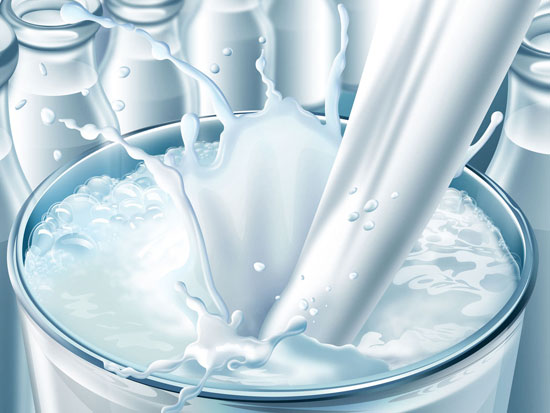A glass of milk contains more than 20 analgesic chemicals
A new study by Spanish and Moroccan scientists shows that a glass of milk may contain a mixture of up to 20 analgesics, antibiotics and growth hormones.

With a highly sensitive test method, the international team discovered a range of chemicals used to treat human and animal diseases in cows, goats and breast milk samples.
The highest dosage of drugs is found in cow's milk. Scientists believe that some growth drugs and stimulants have been introduced into cattle or added to milk through feeding cows or poisoning on farms.
According to the Daily Mail, the team analyzed 20 samples of cow's milk purchased in Spain and Morocco along with many samples of goat milk and human milk. Analysis results reveal that cow's milk contains anti-inflammatory substances such as niflumic acid, mefenamic acid and ketoprofen - commonly used drugs such as human and animal painkillers.
Cow's milk also contains 17-beta-estradiol, a form of estrogen sex hormone. This type of hormone is detected at a dose of 3 millionths of a gram in every kilogram of milk. Meanwhile, the highest dose of niflumic acid in cow's milk is 1 millionth of a gram in every kilogram of milk.
The team also found traces of niflumic acid in goat milk and a small dose of ibuprofen and naproxen analgesics, as well as triclosan and some other hormones in breast milk. However, scientists reassure that the doses of these chemicals are very small and difficult to affect anyone who drinks milk.
The team found that the results from milk samples analysis in Spain and Morocco could be similar when testing the milk produced in England and northern Europe. This study provides another powerful demonstration for the presence of artificial chemicals in all foods.
- Things to know about nut milk and health
- Technology of corn milk making
- Why is milk white?
- The truth after the hospital bill is paid with a glass of milk
- New discovery of analgesic in coffee
- Mistakes about parental milk should be understood
- The reason you feel uncomfortable when drinking milk
- How to distinguish real milk and very good fake milk
- Fresh milk is not completely safe
- Should choose milk according to nutritional needs
- New milk is good for health?
- Use of cow's milk to prevent HIV
 Green tea cleans teeth better than mouthwash?
Green tea cleans teeth better than mouthwash? Death kiss: This is why you should not let anyone kiss your baby's lips
Death kiss: This is why you should not let anyone kiss your baby's lips What is salmonellosis?
What is salmonellosis? Caution should be exercised when using aloe vera through eating and drinking
Caution should be exercised when using aloe vera through eating and drinking Why does milk reduce the effectiveness of antibiotics?
Why does milk reduce the effectiveness of antibiotics?  Why do Asians have a harder time absorbing milk than other races?
Why do Asians have a harder time absorbing milk than other races?  This type of wood is known as 'open-air gold': The Chinese royal family trusts it and uses it, rich people bring sacks of money to buy it!
This type of wood is known as 'open-air gold': The Chinese royal family trusts it and uses it, rich people bring sacks of money to buy it!  Doctors point out two main causes of milk poisoning
Doctors point out two main causes of milk poisoning  How did NASA research create a premise for formula milk?
How did NASA research create a premise for formula milk?  What is always kept by the Mongol cavalry in their cloaks and carried away to 'fight the east and clear the north'?
What is always kept by the Mongol cavalry in their cloaks and carried away to 'fight the east and clear the north'? 